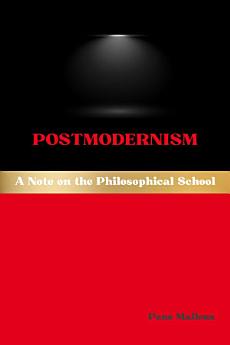Postmodernism: A Note on the Philosophical School
About this ebook
Postmodernism is not a singular doctrine, nor does it adhere to a strict methodology. It is a loose constellation of thinkers, ideas, critiques, and cultural shifts that emerged in response to the perceived limitations and failures of Enlightenment rationality and modernist ideologies. Figures like Jean-François Lyotard, Michel Foucault, Jacques Derrida, and Jean Baudrillard have come to represent various facets of the postmodern sensibility—each with distinct approaches, yet all engaging with fundamental questions about meaning, power, identity, and representation. This diversity is both the strength and the challenge of Postmodernism: it cannot be reduced to a slogan or manifesto, but must be engaged with as a dynamic and evolving conversation.
This book does not aim to offer a definitive account of Postmodernism—indeed, such an aim would contradict the spirit of the movement itself. Instead, it seeks to provide a clear and thoughtful introduction to the key themes, thinkers, and debates that define postmodern thought. It is written for students, scholars, and curious readers alike—those who may feel both drawn to and disoriented by the complexities of postmodern philosophy. Through accessible explanations and careful analysis, this work aims to clarify without simplifying, to contextualize without reducing, and to critique without dismissing.
A central focus of this book is the way Postmodernism engages with the politics of language, knowledge, and power. Foucault’s genealogies reveal how regimes of knowledge shape what can be said, thought, and done; Derrida’s deconstruction undermines the supposed stability of texts and meanings; Baudrillard interrogates the simulacra of the post-industrial world, where images replace and obscure reality. These thinkers do not merely critique existing systems—they expose the assumptions and exclusions that sustain them. In doing so, they open new possibilities for thinking, acting, and being.
Yet Postmodernism is not without its critics. It has been accused of relativism, nihilism, and political paralysis. It has been blamed for undermining truth, eroding shared values, and fostering a cynical disengagement from the world. These criticisms deserve serious attention, and this book does not shy away from them. Rather than defending Postmodernism uncritically, it presents the movement in all its complexity—its provocations, its insights, and its contradictions.
To understand Postmodernism is not merely to grasp a set of philosophical concepts, but to engage with a mood, a historical shift, a sensibility that has shaped literature, art, architecture, politics, and everyday life. It is to recognize the subtle ways in which our assumptions about reality, truth, and identity are shaped by discourses that are far from neutral. In a time marked by cultural fragmentation, contested truths, and technological hyperreality, Postmodernism offers not answers, but tools—tools for critical reflection, for unsettling the given, for imagining otherwise.
This book is both a guide and an invitation—to read, to question, and to think deeply about the world we inhabit. Whether one ultimately embraces or rejects the postmodern perspective, the journey through its ideas can sharpen our awareness and expand our intellectual horizons. In this spirit, I invite you to turn the page and begin.











